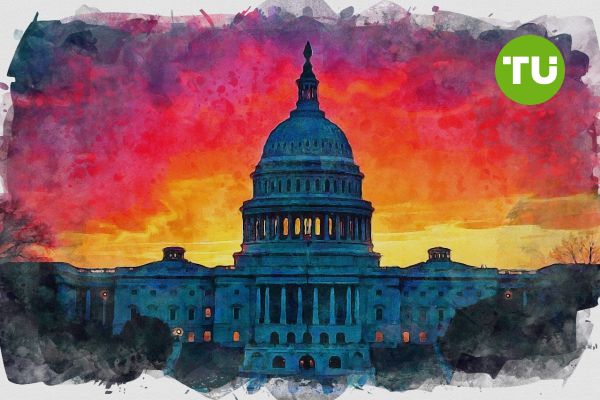David Sacks confident in adoption of stablecoin bill
 Trump adviser David Sacks expects GENIUS Act to pass Senate after key vote
Trump adviser David Sacks expects GENIUS Act to pass Senate after key vote
David Sacks, President Donald Trump’s top adviser on crypto and AI, said the administration expects the Guiding and Establishing National Innovation for US Stablecoins (GENIUS) Act to pass the Senate after clearing a key hurdle on May 21.
Sacks said, “We have every expectation now that it’s going to pass,” following a cloture vote where 15 Democrats joined Republicans to advance the bill, reports Cointelegraph.
The GENIUS Act is the most developed federal legislation to date aimed at regulating dollar-backed stablecoins. Sacks said the bill could unlock “trillions of dollars” in demand for U.S. Treasurys by allowing stablecoin issuers to operate under clear rules. “We already have over $200 billion in stablecoins — it’s just unregulated,” he added. “If we provide legal clarity, we create enormous demand for Treasurys practically overnight.”
Conflict-of-interest concerns swirl around USD1
The bill’s progress has stirred controversy due to the Trump family’s connections to World Liberty Financial (WLFI), which launched the USD1 stablecoin earlier this year. USD1 is backed by U.S. Treasurys and has attracted a $2 billion commitment from Abu Dhabi-based MGX via Binance. While Sacks confirmed he sold $200 million in crypto holdings before joining the White House, he declined to comment on whether the Trump family could benefit from the bill’s passage.
Critics argue the administration may profit indirectly, citing Trump’s active promotion of WLFI and the token’s rapid rise. Despite these concerns, the bill has moved swiftly — a reflection of increasing demand for regulatory clarity in the stablecoin sector, particularly among fintechs and institutional players.
Banking lobby resists yield-bearing competition
One potential roadblock is a new amendment from Senator Josh Hawley that would cap credit card late fees. While popular among some consumer advocates, the measure has drawn pushback from financial institutions that may now withdraw support for the GENIUS Act.
Meanwhile, banks are growing wary of stablecoins that pay yield. NYU professor Austin Campbell wrote on May 21 that banks are “panicking” over the threat of interest-bearing stablecoins, which could draw customer deposits away from traditional financial institutions. “Stablecoins may expose and disrupt the banking system’s dependence on fractional reserve lending,” Campbell warned in a widely shared post titled “The Empire Lobbies Back.”
He argued that if stablecoin issuers can offer higher returns by passing on Treasury yields to users, banks risk losing their deposit base and fee-driven profits.
Recently we wrote that Texas is poised to become a national leader in Bitcoin adoption at the state level, following the passage of Senate Bill 21, officially titled the Texas Strategic Bitcoin Reserve and Investment Act.













































































































































